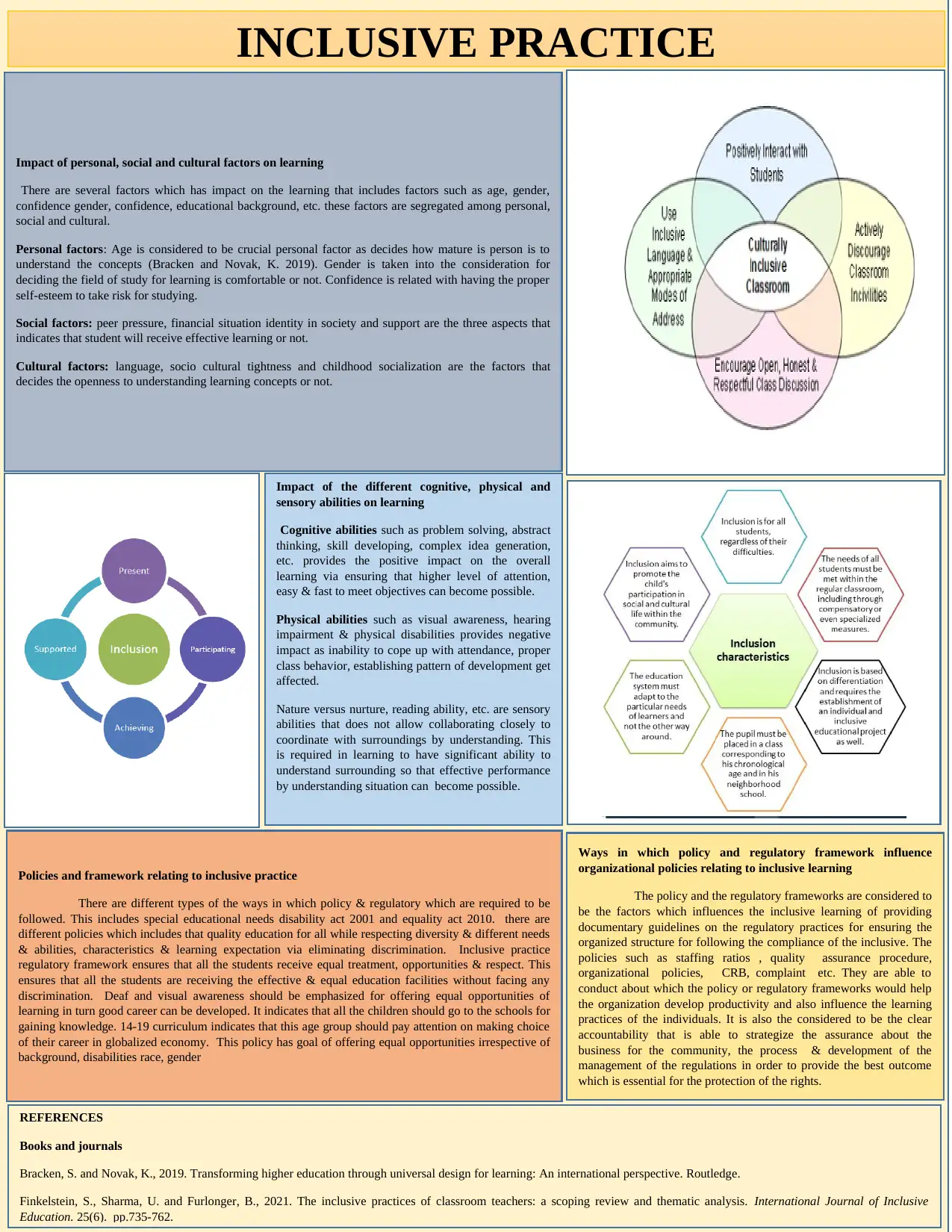Inclusive Practice: Influence of Regulatory Framework on Learning
VerifiedAdded on 2023/06/10
|1
|702
|337
Essay
AI Summary
This essay provides a comprehensive overview of inclusive practice in education, focusing on the impact of personal, social, and cultural factors on learning. It explores how factors such as age, gender, confidence, peer pressure, financial situation, language, and childhood socialization influence a student's learning experience. The essay also examines the effects of cognitive, physical, and sensory abilities on learning, highlighting both positive and negative impacts. Furthermore, it delves into the policies and frameworks related to inclusive practice, including the Special Educational Needs Disability Act 2001 and the Equality Act 2010, and discusses how these policies influence organizational policies related to inclusive learning, ensuring equal treatment, opportunities, and respect for all students. Desklib offers this and many other solved assignments to aid students in their studies.






![[object Object]](/_next/static/media/star-bottom.7253800d.svg)